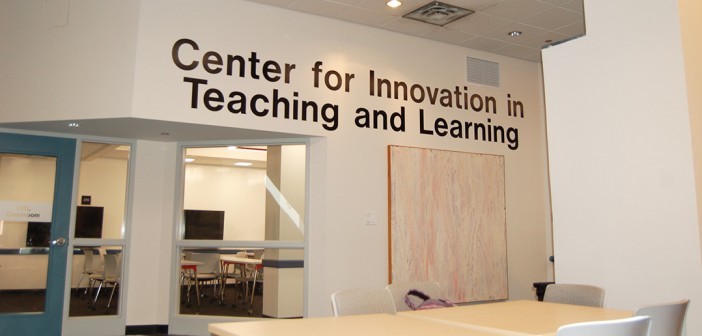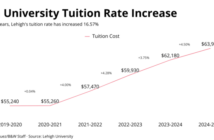Coming into Lehigh, it’s easy for a student to get swept up in the fast pace and intensity of academic life. One way to stay organized that Lehigh offers is the Technology, Research and Communication — or TRAC — Writing Fellows Program.
The TRAC program encompasses a group of students who applied and are qualified to help other students edit papers and presentations for classes. TRAC fellows create a relationship with students over the course of a semester by helping them work through their thoughts and guide them in the right direction.
Jennifer Angelo, ’17, a TRAC fellow and bioengineering major, said she has loved her experience with the program.
The application process begins with writing a letter of interest to the program, followed by submitting writing samples. The final step is being interviewed.
Once accepted as a TRAC fellow, students must take a semester-long seminar course. Fellows are involved with staff meetings once a month as well as weekly working groups all to improve the program.
Regardless of whether a student is in the business school, arts and sciences or engineering, many are required to have a TRAC fellow for certain courses. If students don’t meet with their assigned fellows, they can receive grade deductions in the course.
Alexander Kalmus, ’16, a finance and accounting major, explained the process of working with students and professors throughout the semester. Before a semester begins, Kalmus meets with the professors teaching the classes she is mentoring in order to get a better idea of what they want to see in students’ papers, as well as how to guide students in the right direction and help them improve their work.
“It really makes me have a new appreciation for the professor,” Kalmus said.
Kalmus and Angelo have both experienced personal advantages from the program. Their writing skills and their communication skills, along with others, have improved.
“You’re helping people when it boils down to it, and your own skills get better through that,” Kalmus said. “You’re talking to new people every single semester.”
Becoming a TRAC Fellow has prepared the two for the working world as well. Although neither Kalmus or Angelo plan on going into writing or editing careers, they both are aware that being able to write, communicate with others and manage time well are all crucial in their success, and they credit this to the program. Kalmus said these skills are vital skils for any career.
Kalmus and Angelo both stressed TRAC fellows are not there to fix grammar in papers but rather to help with their structure and content.
“In the TRAC program, we develop our own writing and so that we can focus on higher order concerns in student’s papers — mainly structure and organization,” Angelo said. “We ask open-ended questions, so it’s an open-ended conversation.”
A TRAC fellow will not hand you back a final paper in a meeting. Kalmus emphasized they are merely a backboard for students’ thoughts. In the end, the fellows want to keep the papers reflective of the student’s writing.
“The best conferences are dialogue and conversations, questions and answers,” Kalmus said. “Everything we say to you is a suggestion. Ideas and solutions, but in no shape or form is it mandatory.”
The TRAC program is different for each student as well.
“I like having a TRAC fellow,” said Courtney Henig, ’19, a student in the business school. “It definitely helps me and gives me a better understanding of the assignment after we’ve met.”
Henig said she can genuinely tell that fellows care about her work and are always positive and willing to put in the time to help.
Kelly McBrearty, ’18, also a business student, said her experience working with a TRAC fellow has been positive.
“I think it helped a lot because it gave me a second opinion, and I knew I could trust what they had to say,” she said.






Comment policy
Comments posted to The Brown and White website are reviewed by a moderator before being approved. Incendiary speech or harassing language, including comments targeted at individuals, may be deemed unacceptable and not published. Spam and other soliciting will also be declined.
The Brown and White also reserves the right to not publish entirely anonymous comments.